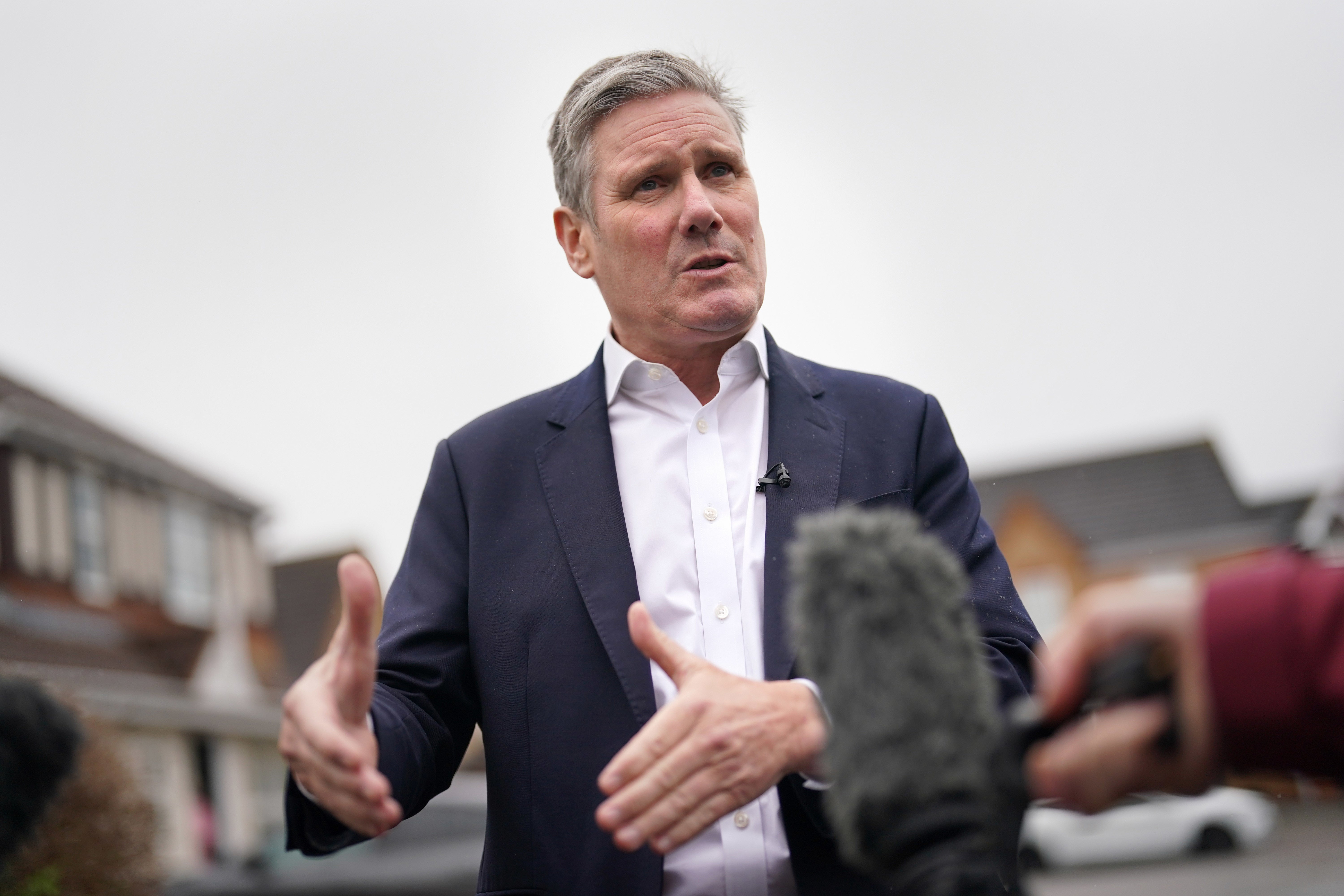We need more politicians who believe in things
Letters to the editor: our readers share their views. Please send your letters to letters@independent.co.uk

Andrew Grice asks “Who is the real Starmer?” Keir Starmer has said that he is nothing without power, and winning is everything. That casts him in the mould of his predecessor Tony Blair who, in order to win, turned his party into Tory-lite.
If winning is all that matters, leaders of parties have to be willing to be blown in the wind of public opinion. Nowadays that is influenced by what appears on social media, much of it untrue.
“Ideology” has become a dirty word in politics – it was what ended the leadership and possibly the political career of Jeremy Corbyn. In order to avoid accusations of being ideological it is now necessary to express no opinion beyond what will attract votes.
Both Starmer and Sunak are possibly at heart decent people. But in their determination to avoid ideology they both give the distinct impression that they are unprincipled. It’s perhaps not entirely their fault. They are leaders of the two parties that have, for a century, colluded in persisting with an undemocratic voting system, so that one or other is always likely to have a working majority. But surely the time has come for a change, and that requires electoral reform.
A coalition of people who feel able to express different views could agree on a course that is right or effective, rather than merely the least unpopular. Labour and the Conservatives are unlikely to rock the electoral boat. The best hope is that enough disaffected voters will vote for neither of them at the next general election, (social media permitting, obviously).
And the answer to Andrew Grice’s question must, for now, remain unknown.
Susan Alexander
South Gloucestershire
The UK needs clear and sensible AI regulation
The UK’s approach to AI regulation stems from its plans for the UK to be regarded as the best place in the world for AI tech to grow. But with a patchwork of ever-growing legal regimes to comply with, the UK government is concerned that “compliance confusion” will make the UK an unattractive place in which for AI businesses to invest. So, instead of choosing the EU’s “rule-based” approach to AI governance and a single AI regulator, the UK has instead opted for a lighter touch “principle-based” approach with decentralised oversight by a diffuse network of existing regulators.
Regulating AI is expensive. It is not clear how this will be funded or who will produce the supporting guidance.
Whilst trading off certainty in return for more flexibility is attractive in the short term, without proper and clear regulation of AI, how can consumers trust AI? Consumers need to know that all reasonable AI risks are regulated and that those developing and deploying AI technology will be held accountable when things go wrong.
In the long run, robust and well-resourced AI regulation will help make the UK the AI superpower that the government dreams of.
Paula Williamson, partner and data protection and privacy specialist, Excello Law
Birmingham
If the BBC is annoying politicians, it’s doing its job
Isn’t the sight of the BBC getting up the noses of politicians, governments and those running an agenda based on greed and profit in the media a healthy sign that it’s doing its job well?
I for one am happy to pay my licence fee in the hope that they will continue to irritate the likes of the disgraced ex-prime minister and many of his acolytes who still seem to have a passing acquaintance with real facts as opposed to outlandish opinions...
More power to their arm.
John Sinclair
Pocklington
We’re in the money
Clearly, the government has more money than it likes to let on. I have just received a letter telling me that from my 80th birthday, due shortly, my pension will increase by 25p per week. Hooray. Every 10 weeks I will be able to afford an extra cup of coffee.
PJ Johnston
Hexham
Join our commenting forum
Join thought-provoking conversations, follow other Independent readers and see their replies
Comments
Bookmark popover
Removed from bookmarks